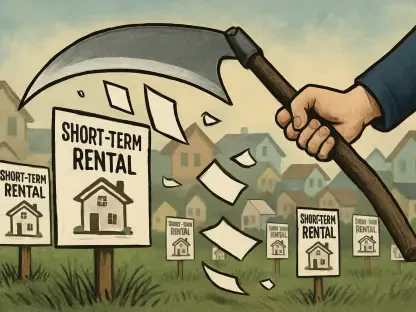Lead generation is not just a skill in the dynamic world of commercial real estate (CRE), it’s a lifeline. With high stakes, valuable transactions, and long sales cycles, professionals need to stand out with precision and strategy.
In addition, fierce competition and ever-changing client expectations make it challenging to get ahead.
Today, lead generation is all about knowing your audience inside out, using the latest tools, and blending innovative digital capabilities with proven offline tactics. Connecting with the right prospects is crucial for success.
Whether you’re a seasoned broker or a rising investor, developing your skill in attracting, engaging, and converting leads will set you up for long-term growth and profitability in today’s CRE landscape.
This article sheds light on practical insights that’ll help you take lead generation to new heights.
Emerging Challenges and Opportune Trends
Before exploring effective approaches to improving lead generation, it’s crucial to understand (and stay on top of) emerging challenges and trends.
The market is becoming increasingly competitive, which compels professionals to hone in on establishing meaningful relationships to scale in a crowded marketplace.
Innovative executives in CRE are embracing an omnichannel marketing approach, one that combines digital tactics like social media with traditional methods (such as direct mail and networking events) to expand the lead pool while still keeping a personal touch.
The National Association of Realtors® (NAR) revealed that 52% of industry professionals garner quality leads from social media.
With 2025 on the horizon, CRE professionals must harness the power of modern tools to tackle new challenges and growth opportunities and ensure lead generation success.
Best Practices for Email Marketing Success
Email marketing is one of the most effective and budget-friendly tools available for commercial real estate professionals. It allows you to showcase properties, generate leads, build relationships, and boost conversions.
According to the NAR, 93% of realtors prefer to communicate via email and phone. But, to get the best results, it’s essential to follow a few key strategies. Explore how you can improve your email marketing approach for commercial properties.
Who Cares?Before hitting send, take some time to really understand your audience. You can break down your email list by factors like location, property type, budget, or how close the lead is to making a decision. This helps you craft messages that speak directly to their needs. Tools like surveys, feedback forms, and even analytics can offer deeper insights into what your audience cares about, allowing you to continuously fine-tune your emails for better results.
Focus on Delivering Varied ValueYour emails should offer something of value. Don’t just send out property listings—mix it up. Include high-quality visuals like photos, videos, or virtual tours. Add useful content too, like market updates, financing options, orindustry trends. A variety of email types, such as newsletters, event invitations, or follow-ups, will keep things fresh and engaging. This approach also helps you maintain a solid connection with your audience.
Capture with Compelling Subject LinesThe subject line is the first thing your recipients see, and it often determines whether they’ll open your email. To get attention, make sure your subject lines are clear and relevant to your audience. A bit of curiosity helps, but don’t mislead people. Try using specific keywords, posing a question, or including personal touches. And always test different subject lines to see which ones perform best with your audience.
Optimize Your DesignAn email’s design should be clean, simple, and easy to read. Use responsive templates that adjust well to different devices and screen sizes. Stick to a consistent look that reflects your brand—think about colors, fonts, and logos. Structure your content with headings, bullet points, and images to make it scannable. And don’t forget a clear call to action that guides your audience on what to do next.
Track What MattersIt’s essential to track how your emails are performing. Look at key metrics like open rates, click-through rates, and conversion rates. These will help you understand what’s working and what needs improvement. Keep comparing results to your goals and adjust your strategies accordingly. And remember, testing and refining your approach based on data will ensure your email campaigns improve over time.
By following these straightforward steps, you’ll be well on your way to using email marketing to strengthen client relationships, grow your business, and successfully promote your commercial properties.
Get Social Through the Right Mediums
Social media is changing how commercial properties are marketed. The NAR also revealed that 92% of real estate professionals use Facebook, 68% use Instagram, 52% report using LinkedIn, and 26% use YouTube.
Platforms like LinkedIn, the world’s largest professional network, Instagram, Facebook, and YouTube offer great ways to showcase your properties with clear photos, videos, and virtual tours. These visuals help make your listings more appealing and easier for potential buyers to understand.
Targeted ads on LinkedIn and Facebook let you reach specific groups based on location or industry. This ensures you’re talking to the right people, which can save time and increase your chances of getting results. Social media also helps expand your reach beyond traditional methods, and tools like analytics can help you fine-tune your strategy for even better results.
Engaging with your audience is key. By responding to comments and messages, you build trust and turn leads into clients. An active social media presence gives you the chance to connect with potential buyers in a more personal way, even online.
These platforms enable you to target niche audiences, providing the time needed to focus on prospects who are most likely to be interested in your properties. Moreover, with the ability to adjust ads based on performance, social media lets you stay flexible and efficient with your marketing.
Consider social media a “showroom” for today’s modern, digital-first decision-makers. This is a smart way to display your listings, as potential clients can check out the properties on their own time, giving them a better chance to see the value of each property. In essence, social media marketing for CRE professionals is about:
Offering a polished view that shows each property’s best features
Showcasing your properties in an engaging way
And striking meaningful connections with buyers
Conclusion
It’s nearly impossible to survive in the world of CRE without efficient lead generation. By combining the right mix of traditional and modern tools, and building a robust strategy, you can reach the right people and build lasting relationships.
In addition, to efficiently connect with potential prospects, CRE professionals must embrace the industry’s best practices and ensure their presence on social media. By staying flexible and building trust with clients, CRE decision-makers can grow their businesses and succeed in today’s digitally enabled market.









